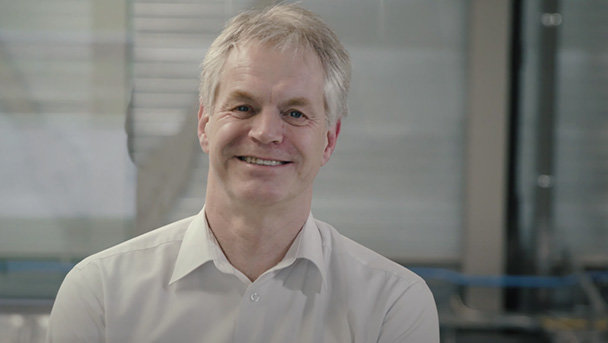Client in focus
Waste plastic becomes reusable raw material
How can you make valuable raw materials for industry from non-reusable plastic waste? BioBTX B.V. from Groningen has developed technology for that purpose: they make raw materials for new plastic, for example, from biomass and plastic waste. This means that almost all plastics can become part of the circular economy. V.O. advised this company to patent this technology for chemical recycling.
“It is hard to separate over half of plastic waste, which means it is usually incinerated or dumped,” explains CEO Pieter Imhof. “That mainly applies to mixtures of plastics consisting of multiple layers, such as chips packets and composites. We have a solution with which we can reuse those waste flows. Our ideal scenario is that there is no more plastic waste in the world.”
Combining processes
The essence of this new technology is the combination of two processes for processing plastic waste: pyrolysis and catalysis. With pyrolysis, plastics are heated in a reactor to a temperature of 752 to 1112 degrees Fahrenheit. This breaks down large organic molecules into smaller ones. The end product (bio oil for example) can be used as fuel for engines or ships.
‘Our ideal scenario is that there is no more plastic waste in the world.’
Pieter Imhof, CEO of BioBTX
Plastic without oil
With catalysis, you can selectively convert those small organic molecules into valuable chemical building blocks. “In our case, the combination of pyrolysis and catalysis led to BTX,” explains Imhof. “The result consists of the so-called aromatics benzene, toluene and xylene (BTX), which are important raw materials for producing, you guessed it, plastic. This completes the circle and means plastics no longer need to be made from oil.”
Important details
To protect the invention, V.O. advised BioBTX to register the technology in various patent applications. “Good collaboration and careful detailing are important to protect this type of intellectual property,” states Annemiek Tepper, patent attorney at V.O. in Groningen. “Our critical questions ensure we gain a better picture of the distinctiveness of BioBTX.”
Imhof is pleased with the collaboration. “We provide the information about the technology, the results and the literature. V.O. is well equipped to translate that into a patent application.”
Across the globe
BioBTX is currently using the technology at pilot level but the company wants to take it across the globe. The company also wants issue licenses to existing and new waste treatment plants. Imhof: “A strong IP position is essential in that.”
See also:
Erik Heeres – University of Groningen about BioBTX

Share